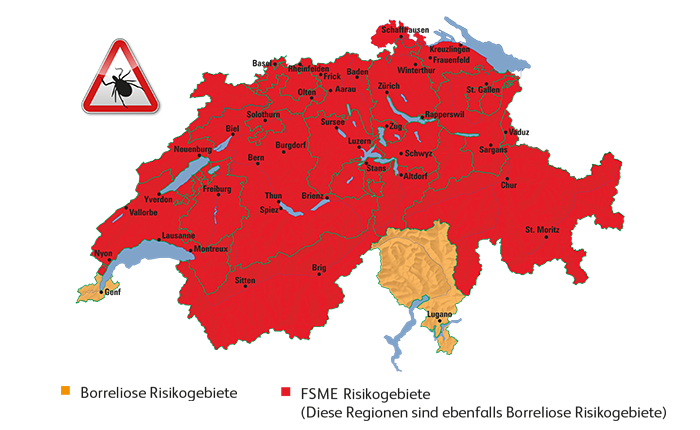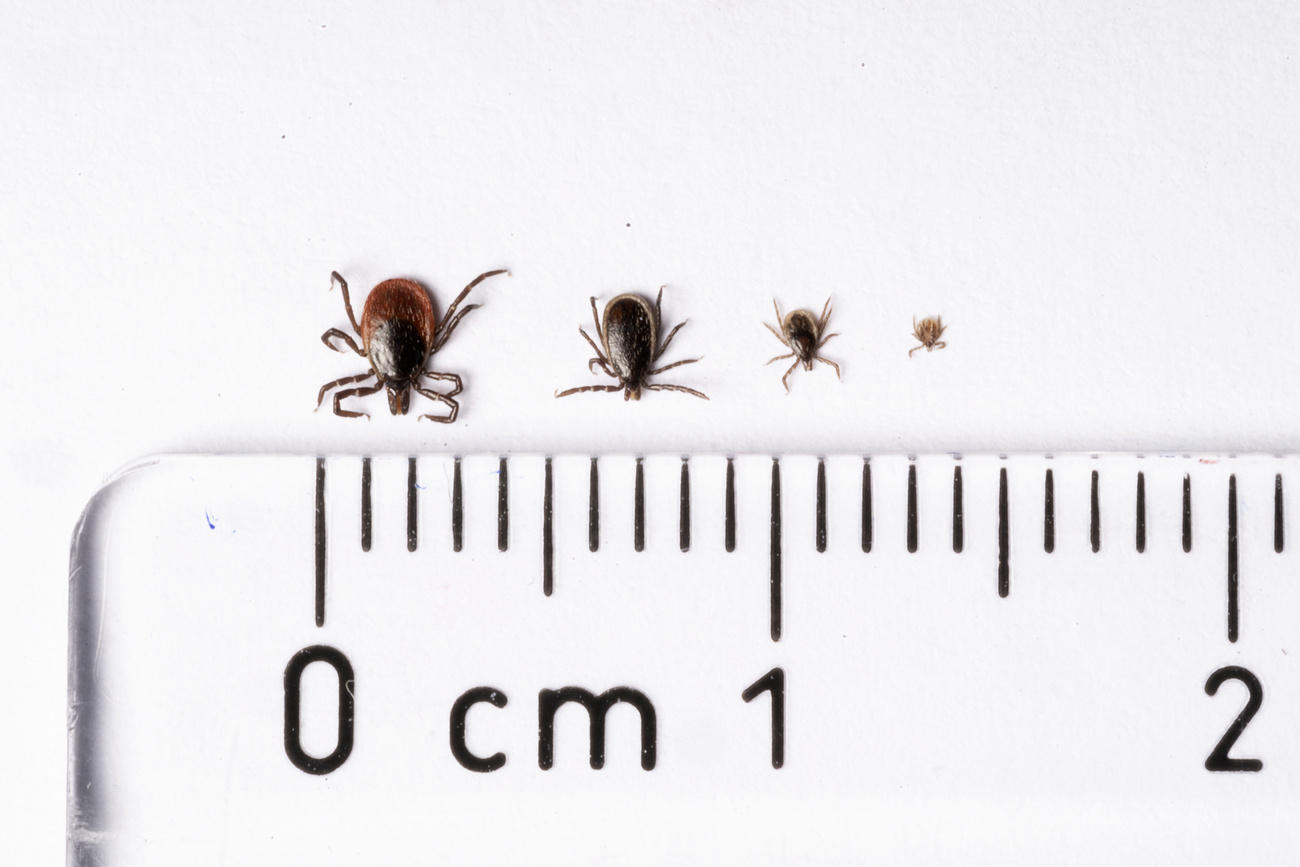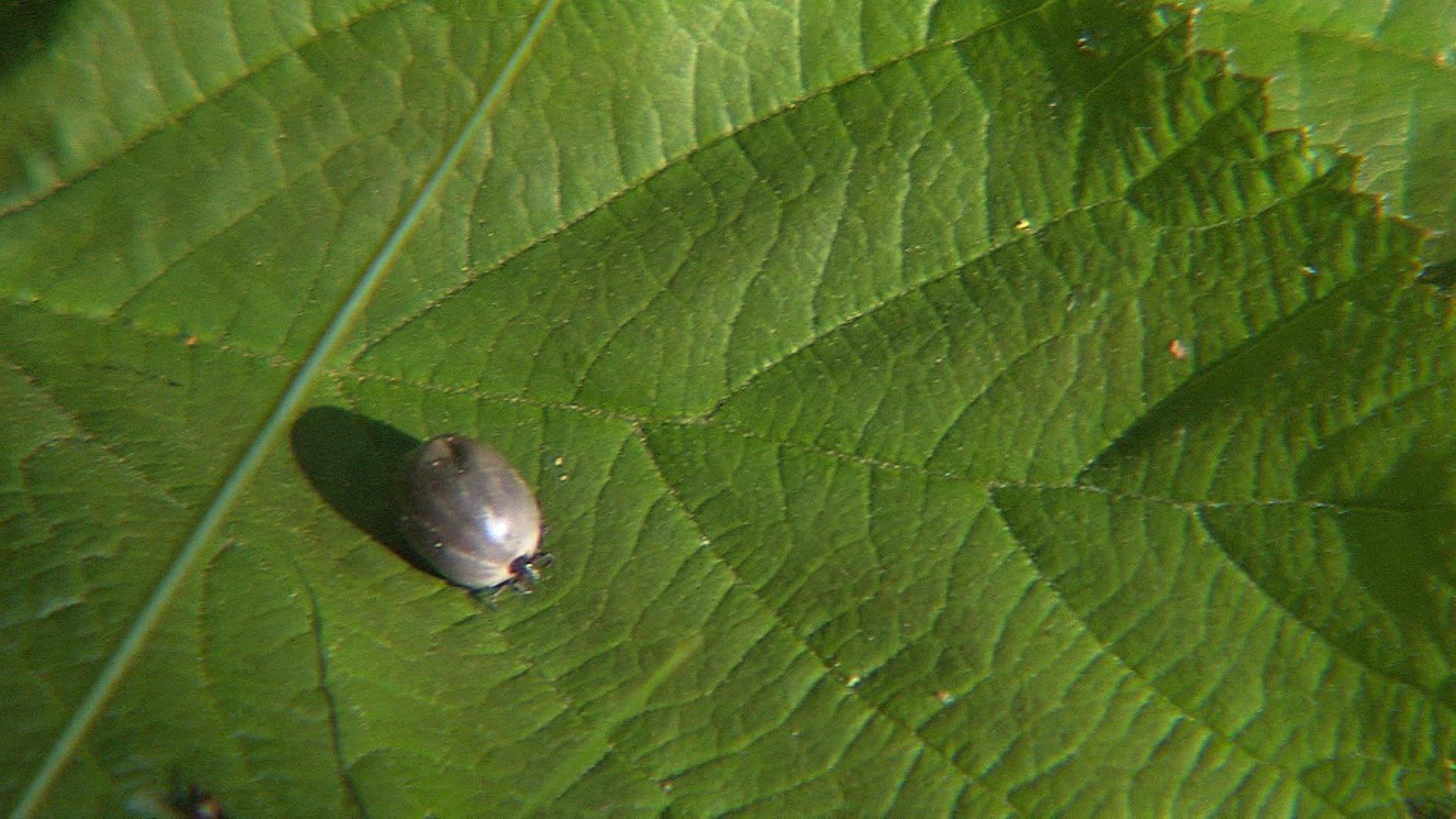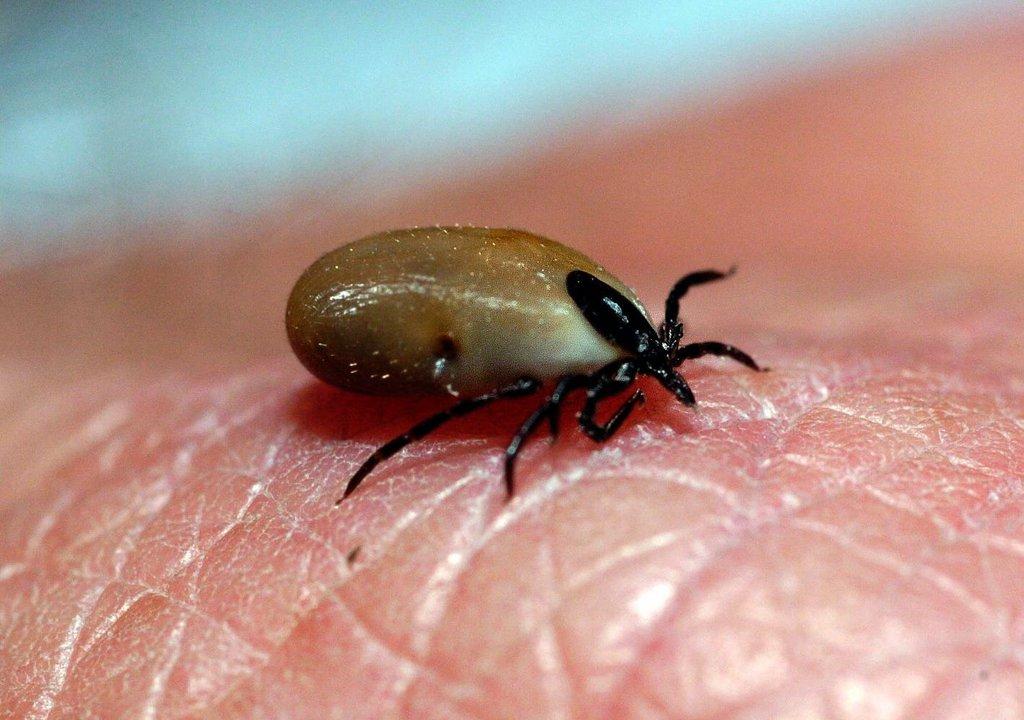Ticks and tiger mosquitoes – the situation in Switzerland

Two insects have been making Swiss headlines because of their ability to spread serious diseases. Here’s a breakdown of the two, including the potential health risks and what you can do to reduce them.
Ticks
Ticks native to Switzerland – mainly the wood tick species – spread tick-borne encephalitis (TBE) as well as Lyme disease. Swiss health officials are particularly worried about TBE, which attacks the nervous system and may result in paralysis, permanent sequelae or death.
Earlier this week, the Federal Office of Public Health issued its latest figures for the spread of TBE. So far there have been 255 cases in 2019 – the second-highest level of incidence recorded since 2000 – but fewer than last year at this time. The total for 2018 was 353, a record.
“It’s still too many cases for a dangerous illness,” says Daniel Koch, head of the health office’s communicable diseases divisionExternal link. “Everyone in Switzerland should be vaccinated. The exceptions are if you live in Geneva or Ticino, or if you never go out in nature.” By enjoying the great outdoors, Koch means a range of activities, including a riverside stroll.
“There are a lot of ticks especially along the Aare River,External link for example. And if you go hiking there’s a real risk,” he says. The vaccination against TBE, issued as a series of three shots, is covered by the basic Swiss health insurance. Fellow Alpine nation Austria has issued the same recommendation.
Unvaccinated visitors to Switzerland should wear closed shoes and long trousers if spending time in or near forests or other areas with thick vegetation. At the end of the day it’s important to check whether any ticks have managed to get into a sock fold or any other hidden area.

Asian tiger mosquitoes
An invasive species – the Asian tiger mosquito – is the other insect Swiss health officials are keeping an eye on. Originally from southeast Asia and named after its distinctively striped body, it first appeared in Switzerland in 2003 in the southern canton of Ticino.
This mosquito can transmit illnesses such as Chikungunya; dengue, River Valley and yellow fever; lymphatic filariasisExternal link and Zika. The first cases of locally vector transmitted Zika were observed in France, which shares a border with western Switzerland.
“There is a risk of transmission of Zika virus in Switzerland, too,” reports the Federal Office of Public HealthExternal link. “However, the risk is very low and occurs only under certain conditions. For example, the local mosquitoes would need to ingest the virus from a traveller infected with Zika.”
Within Switzerland, the Asian tiger mosquito has established itself in Ticino. Most recently it was spotted in Zurich in July, in Geneva in September and in Valais last month.
“Due to climate change it’s expected that the tiger mosquito will also establish itself north of the Alps,” says Koch, adding that there is no strategy to eliminate it, as there has been no vector-based disease transmission.
That’s not to say that Switzerland is disease-free. For example, there have been 177 cases of dengue fever in 2019 so far, a bit higher than in other years. But these are attributed to the patients’ travels abroad.
“People shouldn’t get bitten by mosquitoes, especially when travelling in these zones where illnesses are,” Koch points out, citing Asia and South America. To protect themselves, travellers should wear long-sleeved shirts, long trousers, closed shoes and repellant. Vaccinations are also available.
However, even mosquito species native to Switzerland can be carriers for certain tropical diseases.
“West Nile Virus can be spread by local mosquitoes, but we don’t see cases of that in Switzerland, and it’s rare in other parts of Europe,” says Koch.

More
Asian tiger mosquito found in southwest Switzerland

In compliance with the JTI standards
More: SWI swissinfo.ch certified by the Journalism Trust Initiative













You can find an overview of ongoing debates with our journalists here . Please join us!
If you want to start a conversation about a topic raised in this article or want to report factual errors, email us at english@swissinfo.ch.